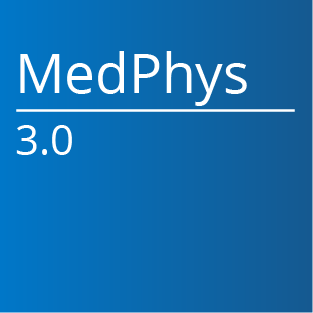Career Advice:
Physical scientists can do anything: Here's how you start your career planning
By: Alaina G. Levine
Alaina G. Levine
I once had an adviser outline available career options for someone, like me, with a bachelors in mathematics. Other than my becoming a professor or teacher, or going into actuarial studies (calculating insurance tables), he intimated there was nothing I could do with my math degree. Nothing—as in zero career opportunities. He advised me to go to grad school and give in to academia.
At the time, I was shocked and dismayed, but in the end I ignored his advice. Instead I launched into science communications and have since crafted an intellectually stimulating career, anchored by my love of science, at the crossroads of writing, professional speaking, career consulting, and even event planning (so if you have a wedding that needs to be arranged, please tweet me). I consider myself lucky: I was able to figure out that people with science, technology, engineering, and mathematics (STEM) degrees have n career options, where n is significantly greater than zero and in fact, theoretically approaches infinity
So how do you find these careers, access them, and assess whether they are right for you? To begin, you have to understand how much value you have as a professional with an education in the physical sciences, whether you are just graduating, completing your postdoc, or have been working for 10–15 years. Most physical scientists think their only value lies in the subject of their expertise: I am a physicist, therefore I can only do physics. And although is it absolutely true that you have great talent in conducting physics research, you have much more to offer potential employers. You have highly coveted skills that you gained simply as a byproduct of studying physics or other STEM fields. As a result of your schooling, you are
- An exceptional problem solver who can see and solve puzzles both granulistically and holistically and in many dimensions.
- An amazing critical thinker who can analyze and imagine situations and scenarios with a 360 degree perspective.
- A talented project manager who can multi-task on diverse teams with great aplomb.
- An adaptive and flexible worker.
- A person who is knowledgeable about how the physical world works. and how to apply that knowledge to solve problems in new realms.
Problem-solving is the most important skill anyone has. In fact, when you are hired for any job, as a professor, a president, or a custodian, you are hired to solve problems. And if there is one thing physical scientists excel in, it is solving problems.
To find the career of your dreams, you have to examine the unique problem-solving capabilities that define your value and then start thinking about how you can use those skills in other industries besides academia. This is not an easy task; it takes extensive self-exploration and external research, networking and informational interviews, time, and even more self-analysis. But know this: The investment you make in discovering your unique value and being able to articulate it to career decision makers will pay off. You will find not only one career option that gels with your interests, goals, and values, but rather n options, where n is much, much greater than 0.
So here’s how you start: Conduct a skill inventory. Make a list of all the experiences you have had—jobs, research assistantships, teaching assistantships, volunteer experiences, committee assignments, and even the part-time jobs that are far outside your discipline. Write down all the technical and scientific skills you gained from each experience. Next, think about the business and soft skills you learned in those same experiences. It may seem strange to think that you’ve acquired, and even mastered, hard business skills from studying the physical sciences, but you have, and they are treasured by employers. Here’s an abbreviated list of the business talents you may already possess:
- Oral and written communications (including your fabulous Power Point presentations).
- Project management.
- Grant and proposal writing.
- Teambuilding and conflict resolution.
- Risk management and safety assessment (as in ensuring the safety of yourself and your team in the lab).
- Marketing (as in convincing your colleagues that your work is significant).
The final action is to try to remember what you loved and, more importantly, what you hated about each experience. That task will help you concretely see not only what you are talented in but also what types of problems you enjoy solving and what ecosystems you enjoy solving them in. And since your career options are great—even if you don’t realize it yet—by determining what you have hated about your diverse experiences, you can begin to put boundaries on what types of career opportunities you should pursue.
The skill inventory is one tool that we will explore with these career articles as we chart a course for you to access, assess, and land your dream job. Once you realize your extensive value by conducting the skill inventory, your next step will be to start looking for opportunities that match the skills you enjoy utilizing, your interests, and your values. In future articles, we will discuss the specific steps to finding these opportunities. Here’s a hint to get you started: It’s all about networking.
If you have suggestions for future column ideas, please send them my way. I am committed to opening your eyes to an entire new world of career opportunities that are yours for the taking—simply because you chose to study physical science and recognize that zero is never an acceptable variable.
Alaina G. Levine is a science and engineering writer, career consultant, and professional speaker and comedian. Her new book on networking strategies for scientists and engineers will be published by Wiley in 2014. She can be reached through her website or on Twitter at @AlainaGLevine.



















